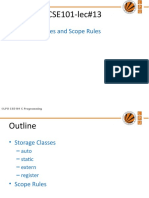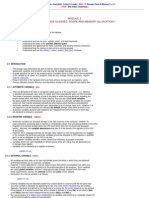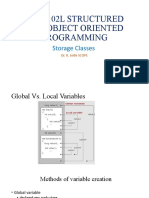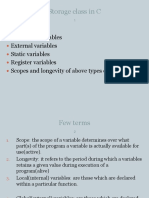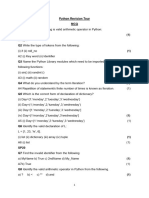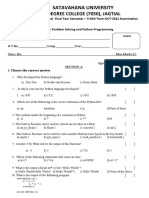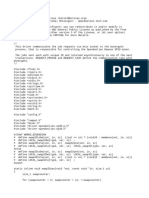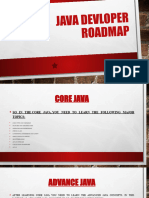0% found this document useful (0 votes)
14 views28 pagesL06 - Storage Classes
The document provides an overview of storage classes in C programming, detailing their types, properties, and usage. It explains the four primary storage classes: auto, extern, static, and register, along with their scope, lifetime, and default initial values. Additionally, it highlights the differences between local and global variables and offers guidelines for effectively using storage classes to optimize memory and execution speed.
Uploaded by
1DA20EC106Puneeth NCopyright
© © All Rights Reserved
We take content rights seriously. If you suspect this is your content, claim it here.
Available Formats
Download as PDF, TXT or read online on Scribd
0% found this document useful (0 votes)
14 views28 pagesL06 - Storage Classes
The document provides an overview of storage classes in C programming, detailing their types, properties, and usage. It explains the four primary storage classes: auto, extern, static, and register, along with their scope, lifetime, and default initial values. Additionally, it highlights the differences between local and global variables and offers guidelines for effectively using storage classes to optimize memory and execution speed.
Uploaded by
1DA20EC106Puneeth NCopyright
© © All Rights Reserved
We take content rights seriously. If you suspect this is your content, claim it here.
Available Formats
Download as PDF, TXT or read online on Scribd
/ 28









